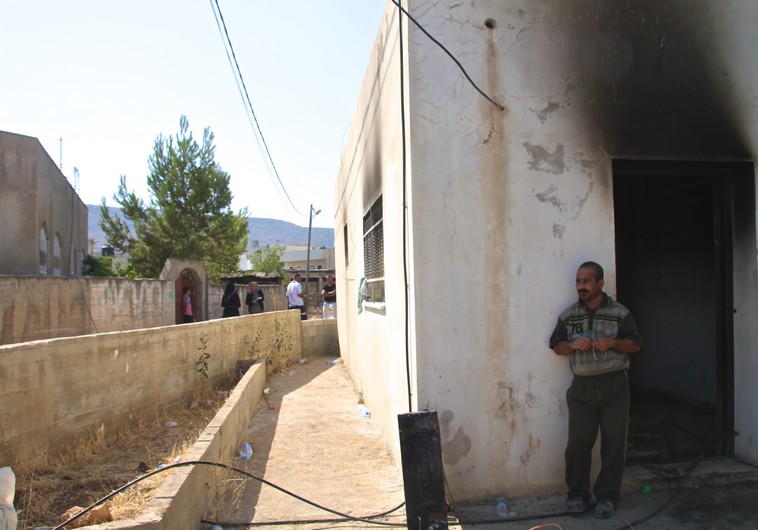Israelis and Palestinians back conflicting narratives in alleged Duma firebombing
Initial police investigations reportedly indicate that the incident was not nationalistically motivated; no injuries.
 The Dawabsha family home in Duma, July 2015(photo credit: TOVAH LAZAROFF)Updated:
The Dawabsha family home in Duma, July 2015(photo credit: TOVAH LAZAROFF)Updated: